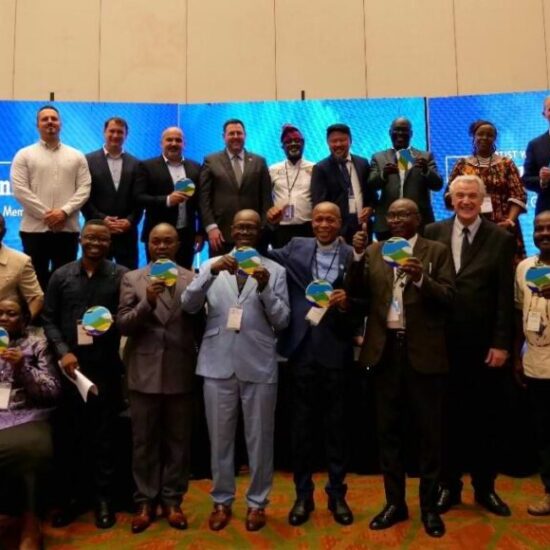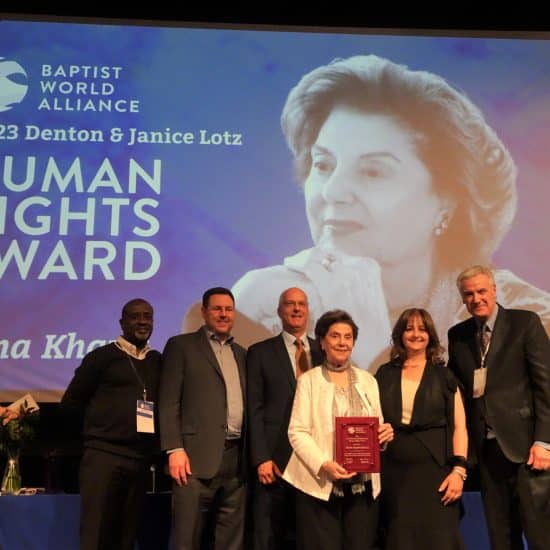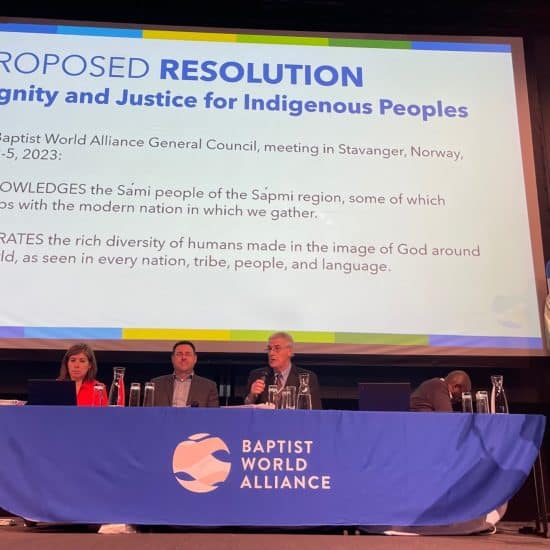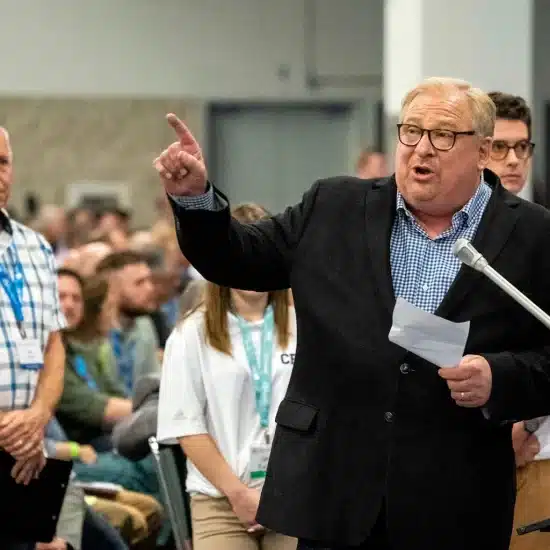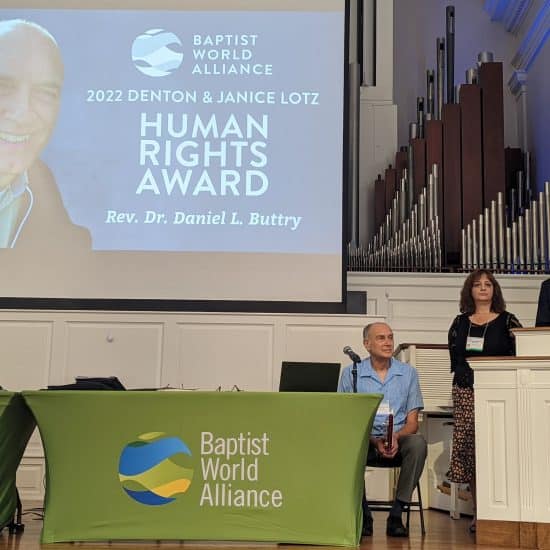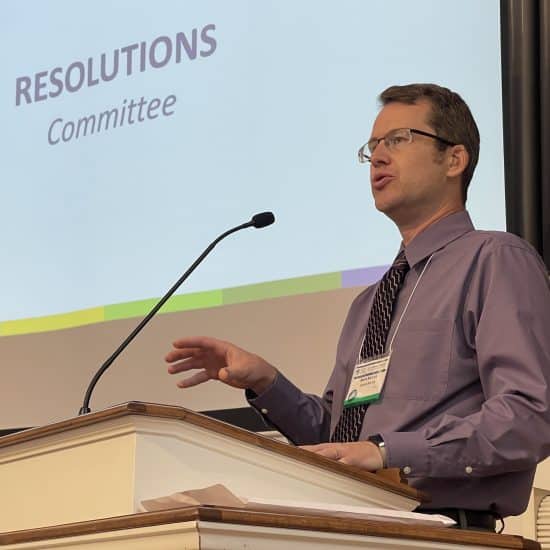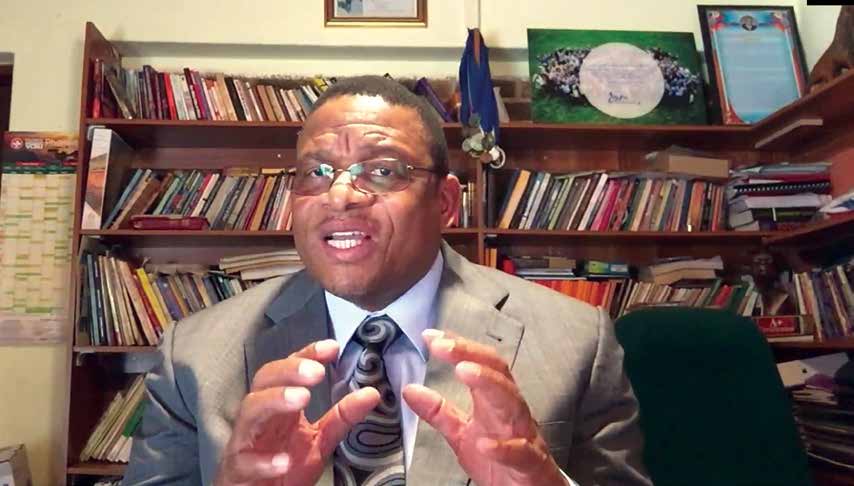

Outgoing Baptist World Alliance President Paul Msiza preaches during the Churchnet virtual spring gathering on April 24. (Screengrab)
Preaching on a computer screen from his office in South Africa because of coronavirus, Baptist World Alliance President Paul Msiza urged those virtually attending Churchnet’s spring gathering to keep Christ at the center. Originally scheduled to occur at First Baptist Church in Lee’s Summit, Missouri, the event was instead held April 24 on Facebook.
Msiza, who is finishing his fiveyear term as BWA president this summer, preached on the theme “Hope Overflowing.” He talked about where that hope comes from, and how to ensure that hope in Christ keeps churches from being “coopted” by politicians. He shared stories from his experiences growing up as a black man in Apartheid to explain his worries for the global Church.
Noting that people are looking for hope during this time of the coronavirus pandemic, Msiza said that the hope we need is from God and “from no one else or from nothing else.”
“This hope makes us to say boldly that God is in charge. No matter what’s happening around us, God is still on the throne,” he said. “Even in a time like this, we are sustained by this hope.”
Msiza argued that “it is important” for Christians that such hope will “always remain in Christ.” Because, he added, that hope prepares Christians to “become a blessing to others.”
“The hope that we have is given to us so that we may become the instruments of God, we can become the very channels that God uses to reach others and give them the same hope that we have,” Msiza explained.
And if Christians “drift away” from that hope, he warned, “we will not fulfill our mission as God’s church on Earth.” And he connected this warning to his experiences growing up in “those dark days of Apartheid.”
“The main question that the people have about us, about South Africa is that when Apartheid was the law of the country where was the Church,” he said. “The Church was in existence, but the Church had allowed itself to be coopted by the politicians and the political systems of the country. And that’s the danger that we are facing today. That instead of us being the hope of the world as the Church of the Lord Jesus Christ … we allow ourselves to be coopted.”
Warning of “unholy politics” where politicians “play the game of power in order to win the Church to be on their side,” he lamented that a coopted church will “no longer see Christ as, or have Christ as, the center of its mission and belief.”
Instead, he added, a “state theology” replaces the Church’s mission and “makes the state to become the Kingdom of God and makes politicians to become the saints that will ever be correct and can never be corrected.” Such a focus on the state to bring hope, he noted, is an idol like the “golden calf” in Exodus.
“The state theology elevates the state above God,” Msiza said. “This is the theology that makes the unholy laws to be holy, that glorifies racism, glories bigotry, glorifies extreme nationalism, and makes these evil things like white supremacy as if they are God’s order.”
“We are living in those days when Christians are so divided because of politicians, when Christians have lost their focus because of the politics of the countries,” he added.
Saying that Christians “have to participate in the politics of the day,” he added “we need to always remember we are the carriers of the overflowing hope in Jesus Christ.”

